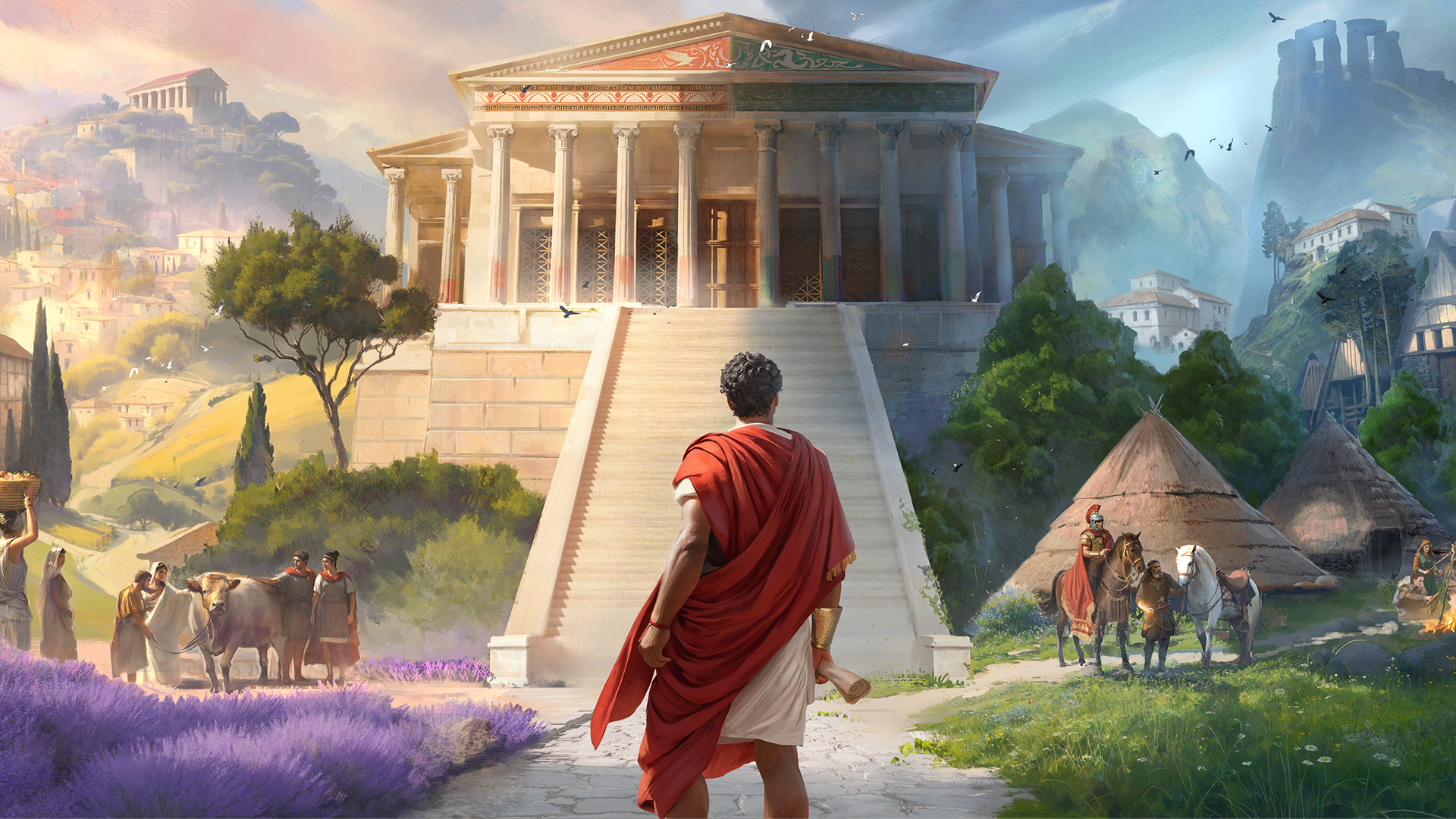GamesRadar+ Verdict
While not particularly revolutionary, there's a lot to like about Anno 117. If you get your teeth into the game's complexity, you'll find yourself investing a lot of time into spreading Roman ways across your islands and growing your settlements from tiny villages to grand cities.
Pros
- +
Creating and managing supply chains is deeply satisfying
- +
Religious system
- +
Cities are great to look at and nicely detailed
Cons
- -
Busy UI that could be far clearer
- -
Weak campaign
Why you can trust GamesRadar+
It took me a while to get into Anno 117 as a new Anno player. The first hours were spent in a state of confusion, going bankrupt, and wondering what to do next. Then it clicked – the game's core thesis as a city-builder was one of unrestrained growth. I donned my proto-capitalist top hat and tails (making me an oddity in a world of togas), and got to work. Once I understood that the real key thesis of the game was to just keep expanding, swallowing up more and more of your bucolic surroundings, I got it, I really got it, and I was hooked.
The Anno series has taken us from the Early Modern Era to the future, and back again to the Industrial Revolution – and now, we're heading back to antiquity. Anno 117 takes place during the period known as the Pax Romana, a time of general peace and prosperity in the Roman Empire. It was also a time of long-term imperialism, and guess what you'll be doing in this game? That's right – expanding, baby.
Denarius Populusque Romanus
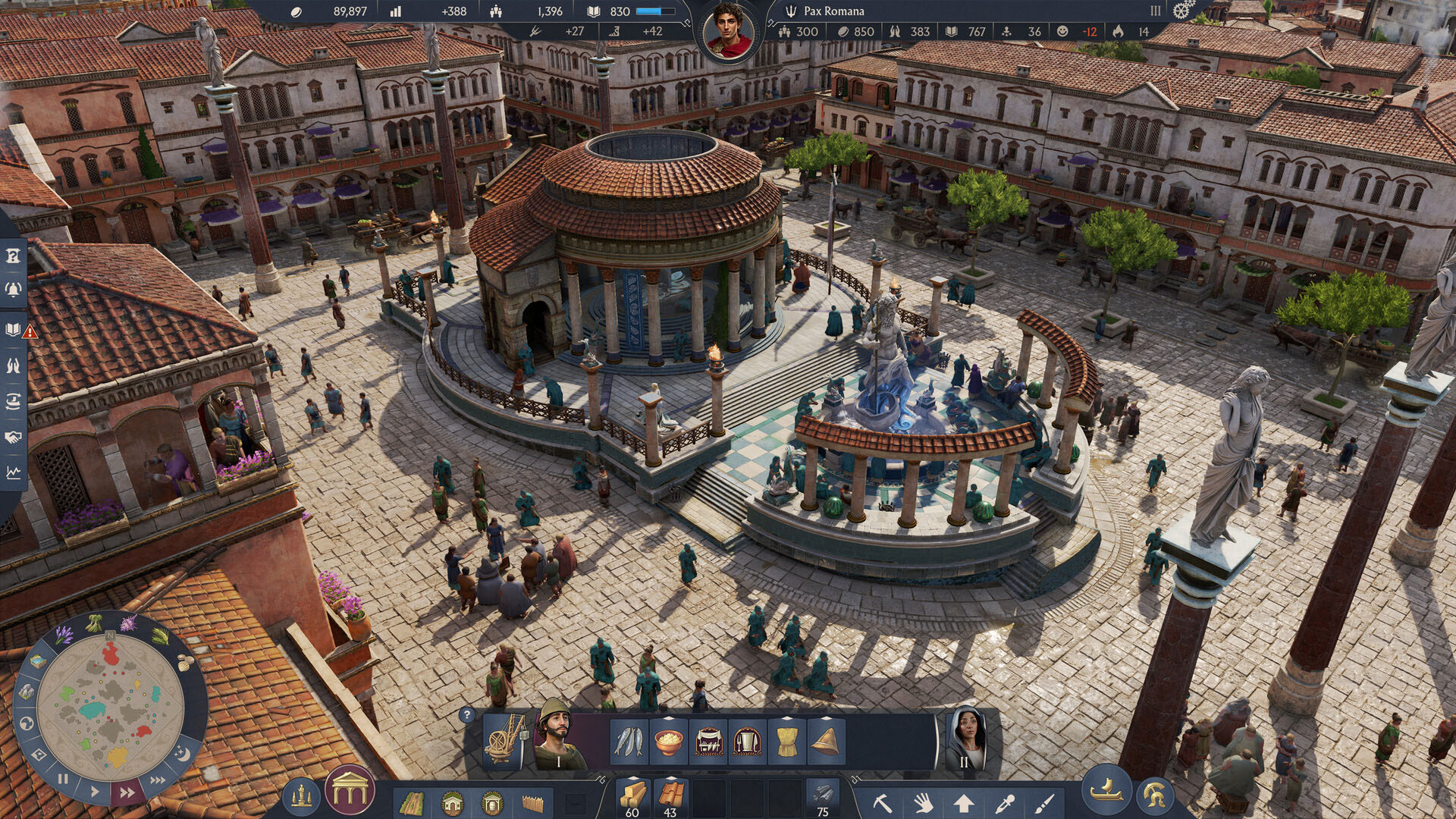
Release date: November 13, 2025
Platform(s): PC, PS5, Xbox Series X/S
Developer: Ubisoft Mainz
Publisher: Ubisoft
You start off in traditional Anno fashion: you're on an island with limited resources and need to build a somewhat sustainable, stable economy. Then you will inevitably decide that actually those resources on the other island look pretty peachy, and start a second city over there, and so on. This draws you into conflict with your rivals, other governors who also want to grow their societies, and you can deal with them through either diplomatic or military means.
Militarism has been expanded in Anno 117, as befits a game set in post-Marian reforms Rome. Land combat makes a return to the series, and it's seen a lot of work compared to older games in the series. There's a rock, paper, scissors aspect to warfare that will be familiar to any Total War fans, and it's generally pretty satisfying.
However, the diplomatic route is just as enjoyable, and it's the area where I focused most of my efforts. Why fight when you can trade, after all? Supply-chain management is, as always in the series, what you need to take the most care of, and a strong economy will pretty much always result in a surplus of at least some trade goods, which you can sell off to get even richer. Manage your economy well, trade with everyone that you can, and you will be as rich as Croesus, or perhaps more fittingly for the setting, Crassus.
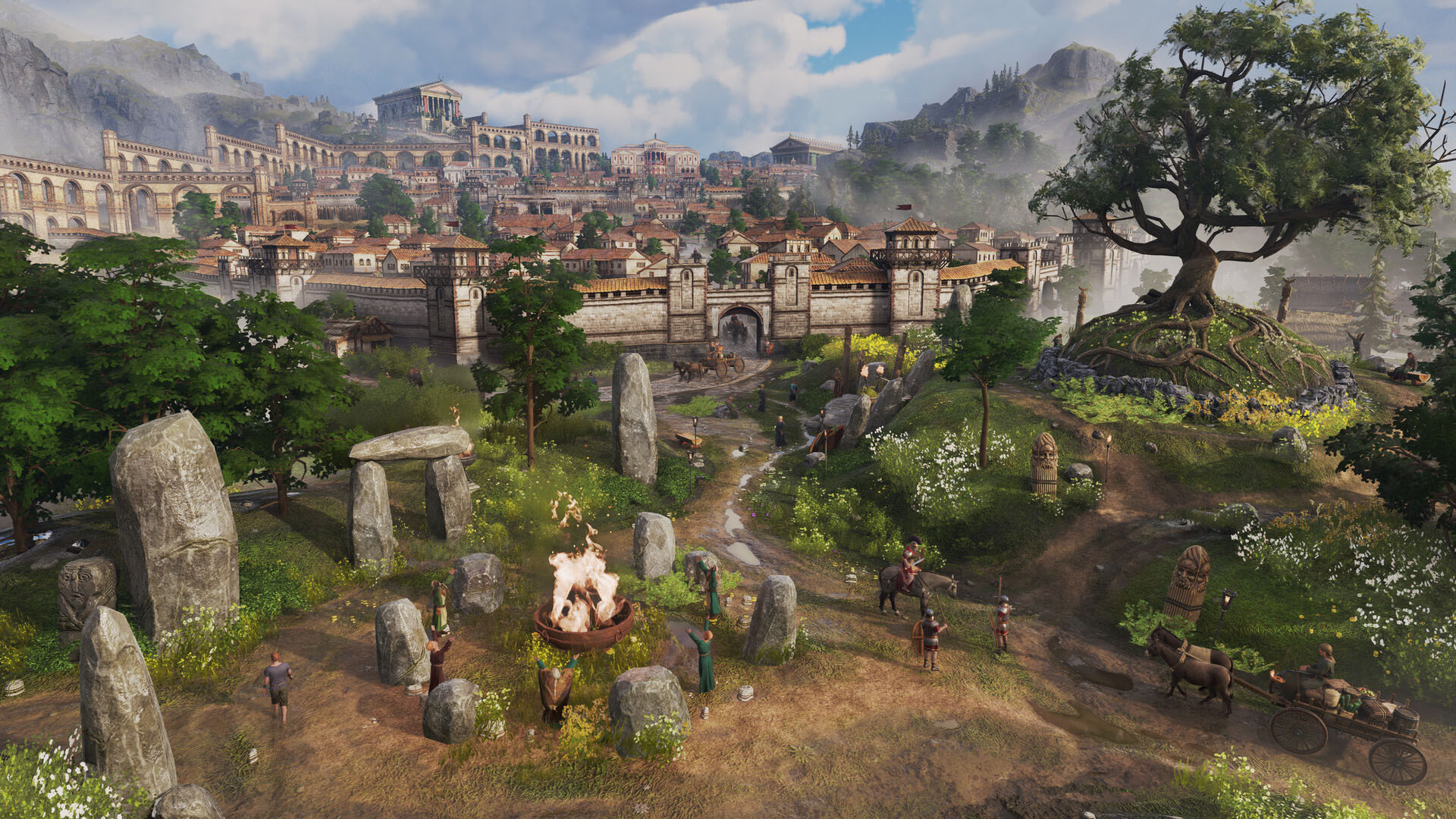
The UI is somewhat questionable, at least for PC players, and the only part of the game that caused me issues. Each good's supply chain, key information, is hidden in a sub-menu for the population that consumes it. For example, if you're trying to please the Plebians, you'll need to produce bread, because porridge and sardines aren't enough for them (not that I can blame them).
To see the supply chain that you'll need for bread (wheat, flour, charcoal), you need to scroll to the Plebeians on your construction menu, click on the bread good, then finally click on each building type to construct it. It's a drawn-out process that could have been made far simpler – Against the Storm's UI is a good example that they should have followed. It's not game-breaking or too frustrating once you get used to it, but it does seem like an odd choice.
Weekly digests, tales from the communities you love, and more
I donned my proto-capitalist top hat and tails and got to work.
The game also has a habit of not switching to a building's vital sub-modules by default. An example of this came when I was trying to harvest eels to feed my population. I knew the building needed to be placed in marshland, but once placed, it complained it didn't have access to a soggy mire. Quite reasonably, I tried placing it in wetter parts of the marsh, but it was actually requesting that I effectively lay out fields for the eel catchers to work in. The game didn't default to placing them, as it does with fields of grain, so I was extremely confused for a while.
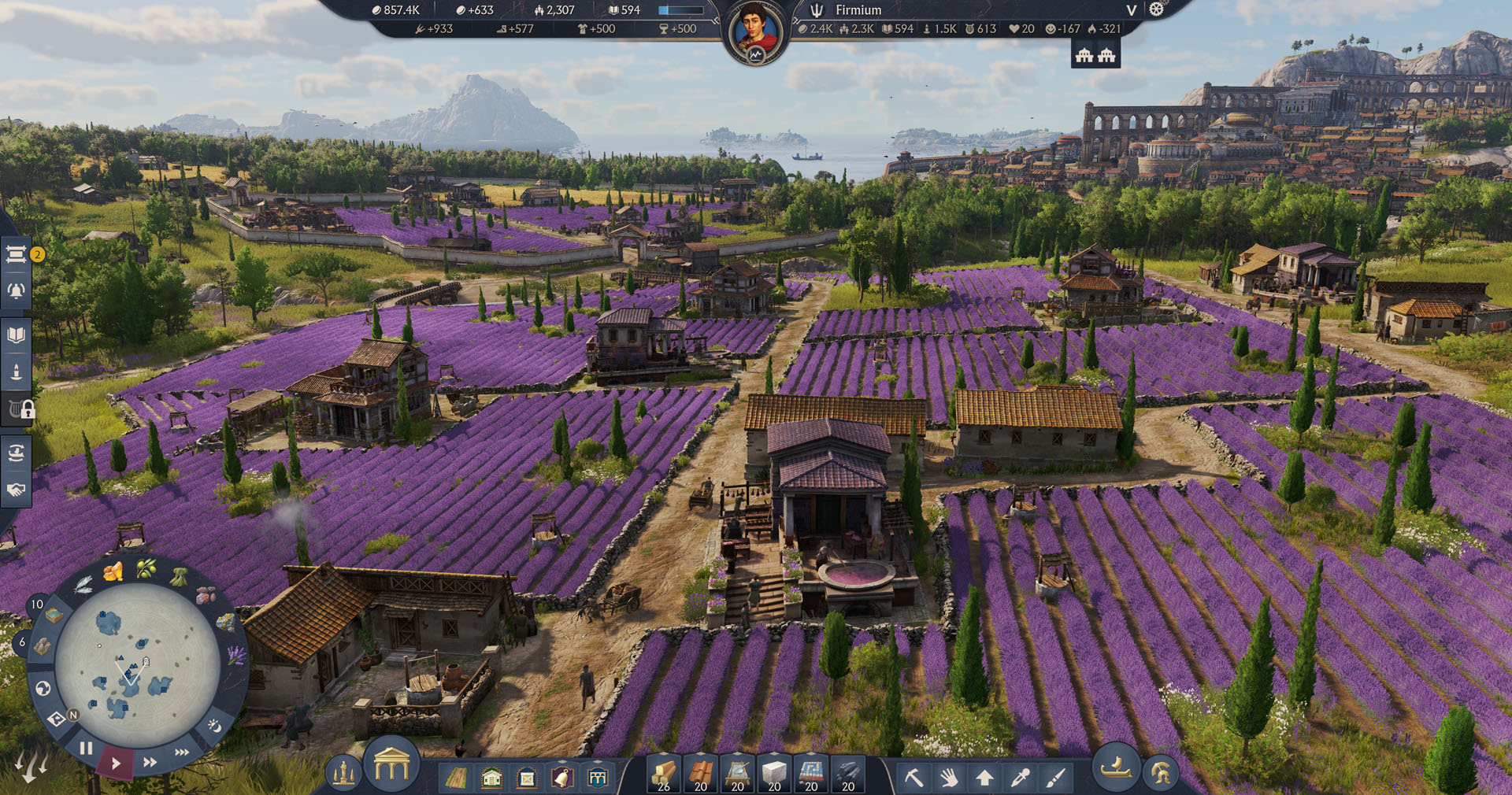
You'd better get used to scrolling through the aforementioned population menus, as the game features a wide array of population types, all of whom have needs that you'll need to meet. Set across two biomes, Latium (Rome's Greatest Hits, Vol. 50), and Albion, or ancient Britain. Whichever setting you're playing in, the game's gorgeous to look at, and the detail in the game's cities makes them feel like living, breathing things.
In Albion, you'll be able to choose whether to hybridize your cultures or go full Celtic. Each offers unique rewards, including different building types, but, more notably for Anno, Gods. Religion has a big part to play in Anno 117, with Belief another resource that you'll need to grow, alongside knowledge and the money in your vaults. You'll pick a god from your pantheon, and your belief will then grant bonuses that increase in power as you grow your cities' belief. Combine this with a pretty sizable tech tree, and there's a ton to do.
Not a campaign worth one of Caesar's diaries
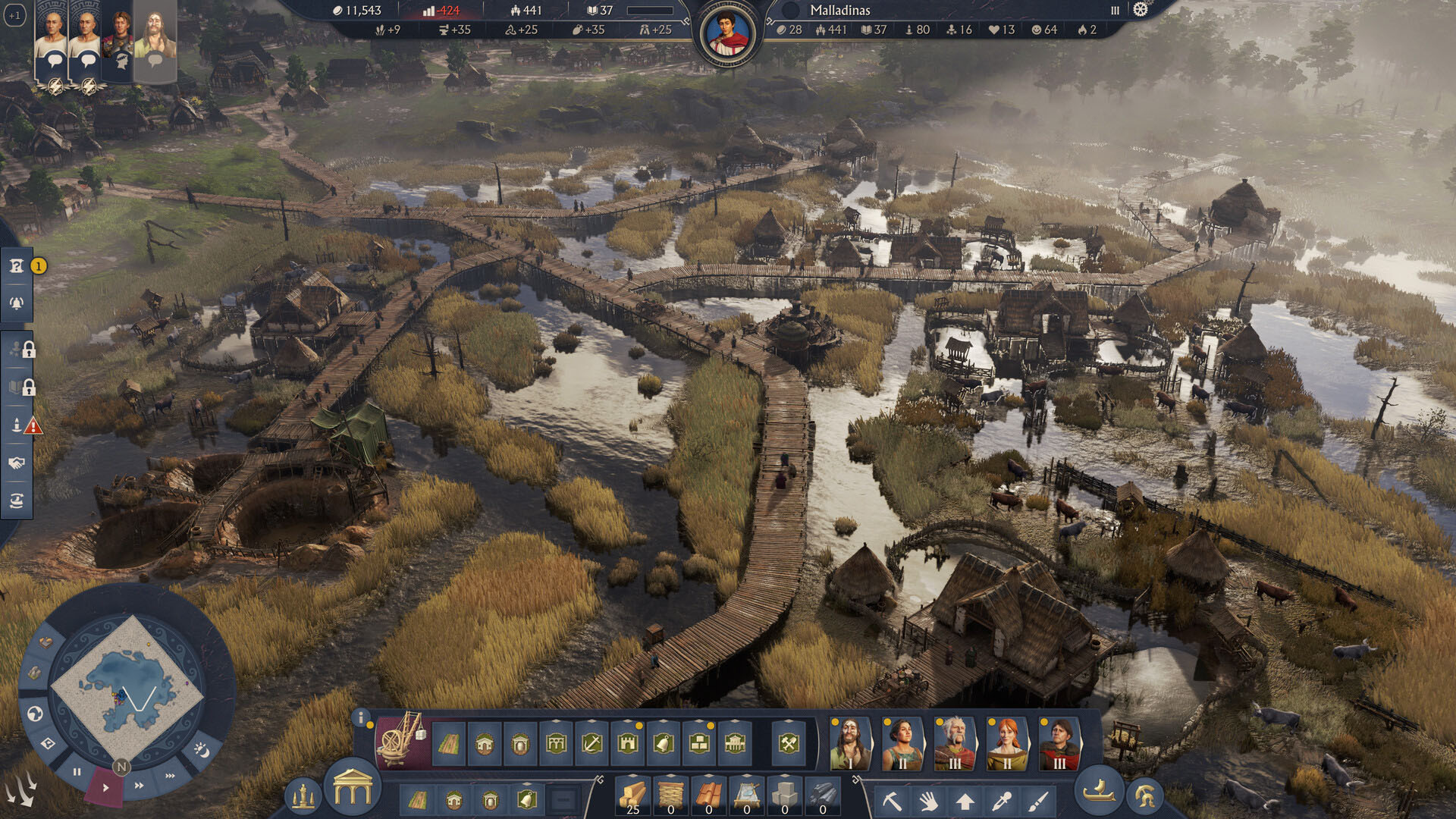
The game is split into a campaign and a sandbox mode. The campaign is entirely perfunctory, with the plot effectively serving as nothing more than an extended tutorial. While it's a shame that it couldn't be more interesting, it's not that much of a problem: the sandbox mode is going to be where most players spend their time, and it's very strong.
Here, the only "story" that you'll encounter to a significant degree is requests from your population. For example, a Libertus may ask you to hunt down some slavers who appear to have enslaved their friend. It's busywork, but it's fine. It's worth mentioning slavery in a little more detail here, as it's largely handwaved away by both the story and the general setting. It's correctly treated as a Very Bad Thing, but don't go into this expecting much political weight.
Despite these problems and a general sense of complexity for complexity's sake (why can't I hit a single button to pause all unproductive buildings, for instance?), I had a good time with Anno. Whether you're looking for a game that can scratch that Caesar/Pharaoh itch by allowing you to create gorgeous cities, or just want to manage huge industrial supply chains, there's a lot to like in Anno 117.
Anno 117: Pax Romana was reviewed on PC, with a code provided by the publisher.
Plan what to play next with our best strategy games list!

Ever since getting a Mega Drive as a toddler, Joe has been fascinated by video games. After studying English Literature to M.A. level, he has worked as a freelance video games journalist, writing for PC Gamer, The Guardian, Metro, Techradar, and more. A huge fan of indies, grand strategy games, and RPGs of almost all flavors, when he's not playing games or writing about them, you may find him in a park or walking trail near you, pretending to be a mischievous nature sprite, or evangelizing about folk music, hip hop, or the KLF to anyone who will give him a minute of their time.
You must confirm your public display name before commenting
Please logout and then login again, you will then be prompted to enter your display name.
